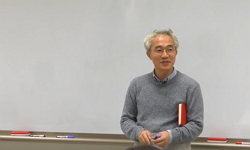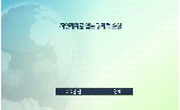이 연구에서는 시스템 사고와 STEAM의 이론을 고찰해 보고 이 이론을 근거로 기후변화 학습에 맞는 시스템 사고 기반의 STEAM 프로그램을 구안하여 학교 현장에서의 적용효과를 확인하고자 하...
http://chineseinput.net/에서 pinyin(병음)방식으로 중국어를 변환할 수 있습니다.
변환된 중국어를 복사하여 사용하시면 됩니다.
- 中文 을 입력하시려면 zhongwen을 입력하시고 space를누르시면됩니다.
- 北京 을 입력하시려면 beijing을 입력하시고 space를 누르시면 됩니다.
https://www.riss.kr/link?id=A103308713
- 저자
- 발행기관
- 학술지명
- 권호사항
-
발행연도
2017
-
작성언어
Korean
-
주제어
기후변화 ; 과학수업 ; 융합적 사고 ; 시스템 사고 ; Climate Change ; Science Class ; STEAM Thinking ; Systems Thinking
-
KDC
310
-
등재정보
KCI등재
-
자료형태
학술저널
- 발행기관 URL
-
수록면
113-123(11쪽)
-
KCI 피인용횟수
5
- DOI식별코드
- 제공처
-
0
상세조회 -
0
다운로드
부가정보
국문 초록 (Abstract)
이 연구에서는 시스템 사고와 STEAM의 이론을 고찰해 보고 이 이론을 근거로 기후변화 학습에 맞는 시스템 사고 기반의 STEAM 프로그램을 구안하여 학교 현장에서의 적용효과를 확인하고자 하였다. 연구자와 외부전문가들의 지속적인 전문가 과정을 통해 시스템 사고 기반 STEAM 프로그램을 개발하였으며, 중학생들을 대상으로 8주에 거쳐 시스템 사고 기반 STEAM 프로그램을 과학수업에 적용하였다. 따라서 현장 적용에 대한 효과성을 검증하기 위해 시스템 사고 검사와 STEAM 소양 검사를 실시하였으며, 최종학업 성취도 검사를 실시하여 시스템 기반 STEAM 프로그램의 효과성을 확인하였다. 연구 결과는 다음과 같다. 첫째, 시스템 사고 분석에서는 시스템 사고의 하위 구인 중 ‘정신 모델’을 제외한 ‘시스템 분석’, ‘개인숙련’, ‘공유비전’, ‘팀 학습’에서 실험집단이 비교집단에 비해 통계적으로 의미 있는 차이가 나타난 것으로 확인되었다. 둘째, STEAM 소양 검사에서는 ‘과학’, ‘기술’, ‘공학’, ‘예술’, ‘수학’의 사전 · 사후에 의한 두 집단 독립표본 t검정의 통계 결과, STEAM 소양의 하위구인들 전체에서 실험집단이 비교집단에 비해 통계적으로 의미 있는 차이가 나타난 것으로 확인되었다. 셋째, 기후변화에 관한 학업성취도 평가에서는 실험집단이 비교집단에 비해 학업성취도가 높은 것으로 확인되었다. 따라서 시스템 기반 STEAM 프로그램이 시스템 사고를 통한 융합적 사고력 배양에 적합하며, 기후변화 과학을 바탕으로 새로운 아이디어를 제시함으로써 창의적으로 문제를 해결하는 사고 능력을 신장할 수 있을 것으로 기대된다.
다국어 초록 (Multilingual Abstract)
This research is designed to review the systems thinking and STEAM theory while ascertaining the effects of the classroom application of the STEAM programs based on systems thinking appropriate for studying climate change. The systems thinking based S...
This research is designed to review the systems thinking and STEAM theory while ascertaining the effects of the classroom application of the STEAM programs based on systems thinking appropriate for studying climate change. The systems thinking based STEAM program has been developed by researchers and experts, who had participated in expert meetings in a continued manner. The program was applied to science classes over the course of eight weeks. Therefore, the application effects of the systems thinking based STEAM program were analyzed in students’ systems thinking, STEAM semantics survey, and students’ academic achievement. The findings are as follows. First, the test group has shown a statistically meaningful difference in the systems thinking analysis compared to the control group in the four subcategories of ‘Systems Analysis’, ‘Personal Mastery’, ‘Shared Vision’ and ‘Team Learning’ except for ‘Mental Model’. Second, in the pre- and post-knowledge tests, the independent sample t-test results in the areas of science, technology, engineering, art and mathematics show statistically meaningful differences compared to the control group. Third, in the academic performance test regarding climate change, the test group displayed higher achievement than the control group. In conclusion, the system-based STEAM program is considered appropriate to enhance amalgamative thinking skills based on systems thinking. In addition, the program is expected to improve creative thinking and problem-solving abilities by offering new ideas based on climate change science.
목차 (Table of Contents)
- 요약
- Abstract
- I. 서론
- Ⅱ. 연구 방법
- Ⅲ. 연구 결과 및 논의
- 요약
- Abstract
- I. 서론
- Ⅱ. 연구 방법
- Ⅲ. 연구 결과 및 논의
- Ⅳ. 결론 및 제언
- 참고문헌
참고문헌 (Reference)
1 배성희, "중등 교사의 과학 교수 효능감이 천문 수업에 미치는 영향: 근거이론을 중심으로" 한국콘텐츠학회 16 (16): 607-616, 2016
2 백윤수, "우리나라 STEAM 교육의 방향" 학습자중심교과교육학회 11 (11): 149-171, 2011
3 이효녕, "고등학생들의 시스템 사고 측정을 위한 측정 도구 개발과 타당화" 한국과학교육학회 33 (33): 995-1006, 2013
4 교육과학기술부, "개정 고시 과학과 교육과정 No. 2011-361"
5 D. H. Meadows, "Thinking in systems" Chelsea Green 2008
6 M. Sweeny, "The systems thinking playbook" Chelsea Green 2010
7 J. Jeong, "The effect of a case-based reasoning instructional model on Korean high school students’awareness in climate change unit" 10 (10): 427-435, 2014
8 S. Jeong, "The Effect of a Climate Change Monitoring Program on Students’Knowledge and Perceptions of STEAM Education in Korea" 11 (11): 1321-1338, 2015
9 B. Andersson, "Students’understanding of the greenhouse effect, the societal consequences of reducing CO2emissions and the problem of ozone layer depletion" 37 (37): 111-1096, 2000
10 D. P. Shepardson, "Seventh grade students’ mental models of the greenhouse effect" 17 (17): 1-17, 2011
1 배성희, "중등 교사의 과학 교수 효능감이 천문 수업에 미치는 영향: 근거이론을 중심으로" 한국콘텐츠학회 16 (16): 607-616, 2016
2 백윤수, "우리나라 STEAM 교육의 방향" 학습자중심교과교육학회 11 (11): 149-171, 2011
3 이효녕, "고등학생들의 시스템 사고 측정을 위한 측정 도구 개발과 타당화" 한국과학교육학회 33 (33): 995-1006, 2013
4 교육과학기술부, "개정 고시 과학과 교육과정 No. 2011-361"
5 D. H. Meadows, "Thinking in systems" Chelsea Green 2008
6 M. Sweeny, "The systems thinking playbook" Chelsea Green 2010
7 J. Jeong, "The effect of a case-based reasoning instructional model on Korean high school students’awareness in climate change unit" 10 (10): 427-435, 2014
8 S. Jeong, "The Effect of a Climate Change Monitoring Program on Students’Knowledge and Perceptions of STEAM Education in Korea" 11 (11): 1321-1338, 2015
9 B. Andersson, "Students’understanding of the greenhouse effect, the societal consequences of reducing CO2emissions and the problem of ozone layer depletion" 37 (37): 111-1096, 2000
10 D. P. Shepardson, "Seventh grade students’ mental models of the greenhouse effect" 17 (17): 1-17, 2011
11 P. M. Senge, "Schools that learn (Updated and Revised): A fifth discipline field book for educators, parents, and everyone who cares about education" Doubleday 2012
12 Korea Foundation for the Advancement of Science and Creativity (KOFAC), "Policy directions of STEAM education: Introductory training of KOFAC STEAM" Foundation for the Advancement of Science and Creativity 2012
13 V. Koulaidis, "Models of students’ thinking concerning the greenhouse effect and teaching implications" 83 (83): 76-559, 1999
14 S. A. Gallagher, "Implementing problem-based learning in science classrooms" 95 (95): 136-140, 1995
15 R. Stake, "Handbook of qualitative research" Sage 2000
16 Georgette Yakman, "Exploring the Exemplary STEAM Education in the U.S. as a Practical Educational Framework for Korea" 한국과학교육학회 32 (32): 1072-1086, 2012
17 O. Ben-Zvi Assaraf, "Development of system thinking skills in the context of earth system education" 42 (42): 518-560, 2005
18 C. McNamara, "Applied systems thinking" International Society for the Systems Sciences 1998
19 R. Peterson, "A meta-analysis of Cronbach’s coefficient alpha" 21 (21): 381-391, 1994
동일학술지(권/호) 다른 논문
-
회복지향질병관리 프로그램이 입원한 정신과 환자의 회복 및 정신질환 지식과 희망에 미치는 영향
- 한국콘텐츠학회
- 신은식(Eun-Sik Shin)
- 2017
- KCI등재
-
- 한국콘텐츠학회
- 김용기(Yong-Ki Kim)
- 2017
- KCI등재
-
- 한국콘텐츠학회
- 김예진(Ye-Jin Kim)
- 2017
- KCI등재
-
초고령사회 진입 지방자치단체 노인의 의료비부담과 가구 유형의 영향
- 한국콘텐츠학회
- 김제선(Je-Sun Kim)
- 2017
- KCI등재
분석정보
인용정보 인용지수 설명보기
학술지 이력
| 연월일 | 이력구분 | 이력상세 | 등재구분 |
|---|---|---|---|
| 2027 | 평가예정 | 재인증평가 신청대상 (재인증) | |
| 2021-01-01 | 평가 | 등재학술지 유지 (재인증) |  |
| 2018-01-01 | 평가 | 등재학술지 유지 (등재유지) |  |
| 2015-01-01 | 평가 | 등재학술지 유지 (등재유지) |  |
| 2011-01-01 | 평가 | 등재학술지 유지 (등재유지) |  |
| 2008-01-01 | 평가 | 등재학술지 선정 (등재후보2차) |  |
| 2007-05-04 | 학회명변경 | 영문명 : The Korea Contents Society -> The Korea Contents Association |  |
| 2007-01-01 | 평가 | 등재후보 1차 PASS (등재후보1차) |  |
| 2006-01-01 | 평가 | 등재후보학술지 유지 (등재후보1차) |  |
| 2004-01-01 | 평가 | 등재후보학술지 선정 (신규평가) |  |
학술지 인용정보
| 기준연도 | WOS-KCI 통합IF(2년) | KCIF(2년) | KCIF(3년) |
|---|---|---|---|
| 2016 | 1.21 | 1.21 | 1.26 |
| KCIF(4년) | KCIF(5년) | 중심성지수(3년) | 즉시성지수 |
| 1.29 | 1.25 | 1.573 | 0.33 |





 ScienceON
ScienceON DBpia
DBpia






